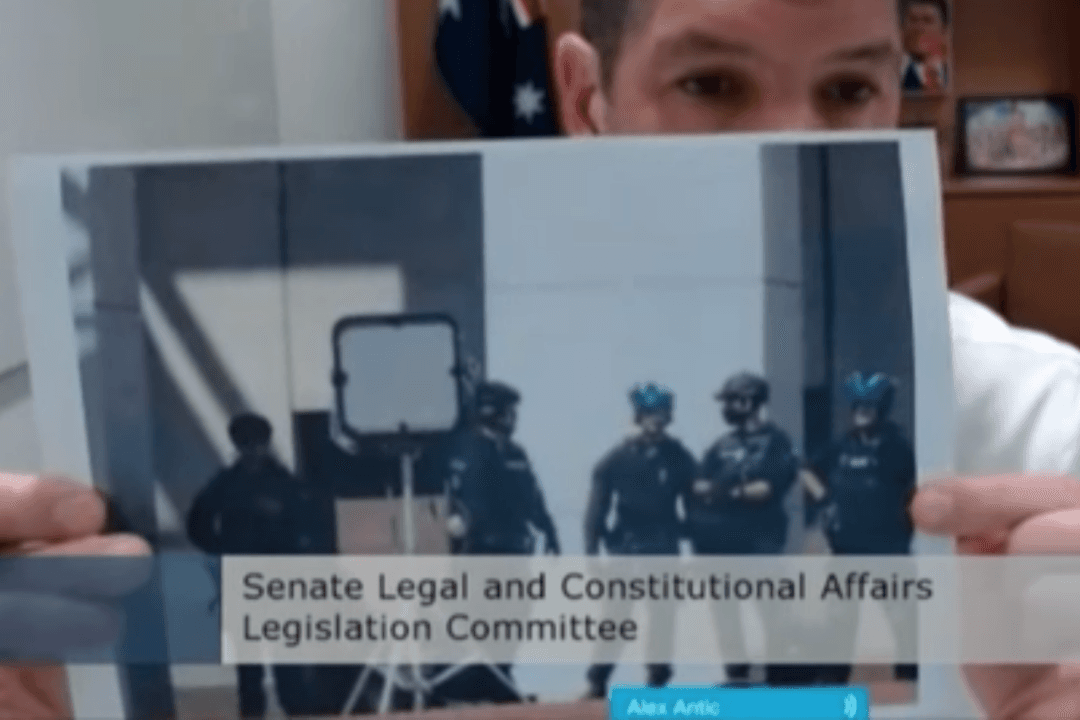Australian Capital Territory (ACT) Policing have confirmed the use of a Long Range Acoustic Device (LRAD)—often regarded as a sonic weapon—at the massive protest against vaccine mandates in Canberra on Feb. 12, despite the Australian Federal Police (AFP) commissioner describing the crowd as “well behaved.”
“ACT Policing has deployed several types of loudspeakers and amplification devices to quickly and effectively convey voice messages to large, and often loud, crowds of people during the recent protest activity in Canberra,” an ACT Policing spokesperson said in a statement to The Epoch Times on Feb. 16.





